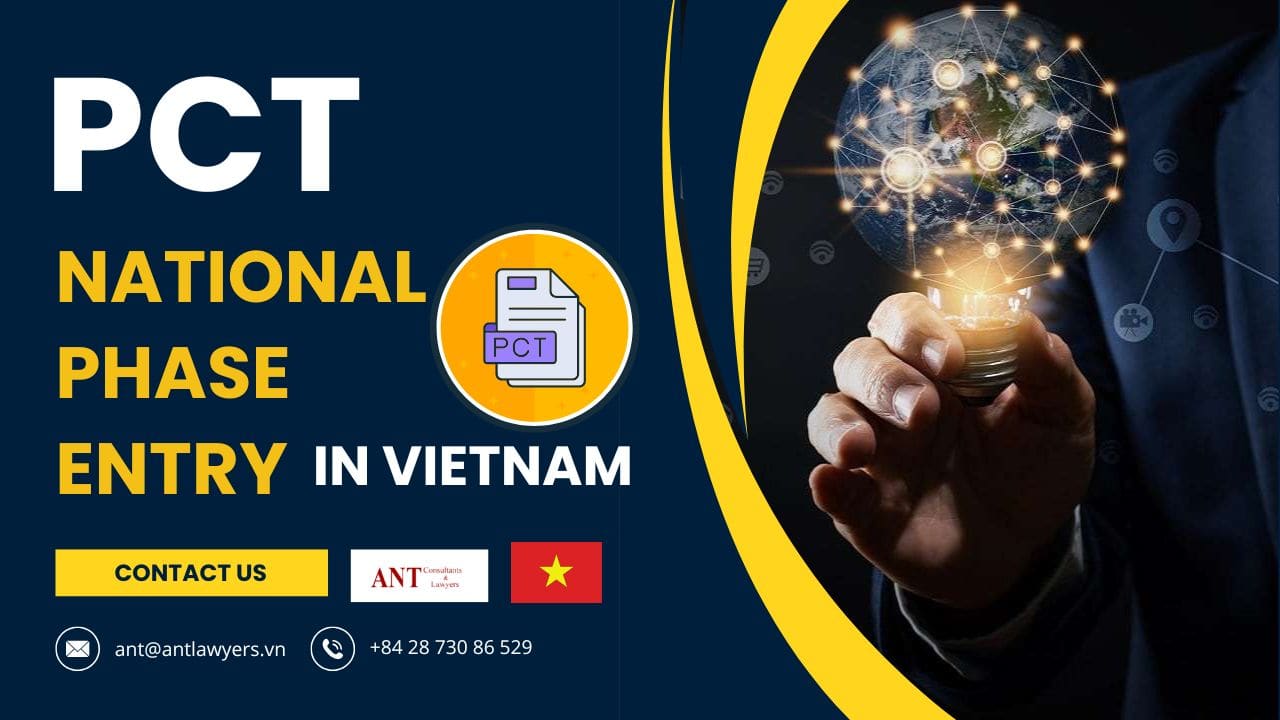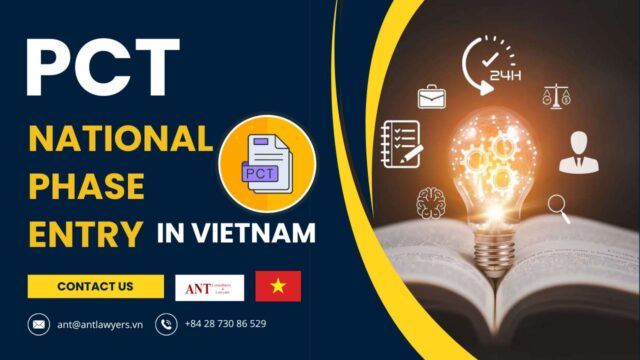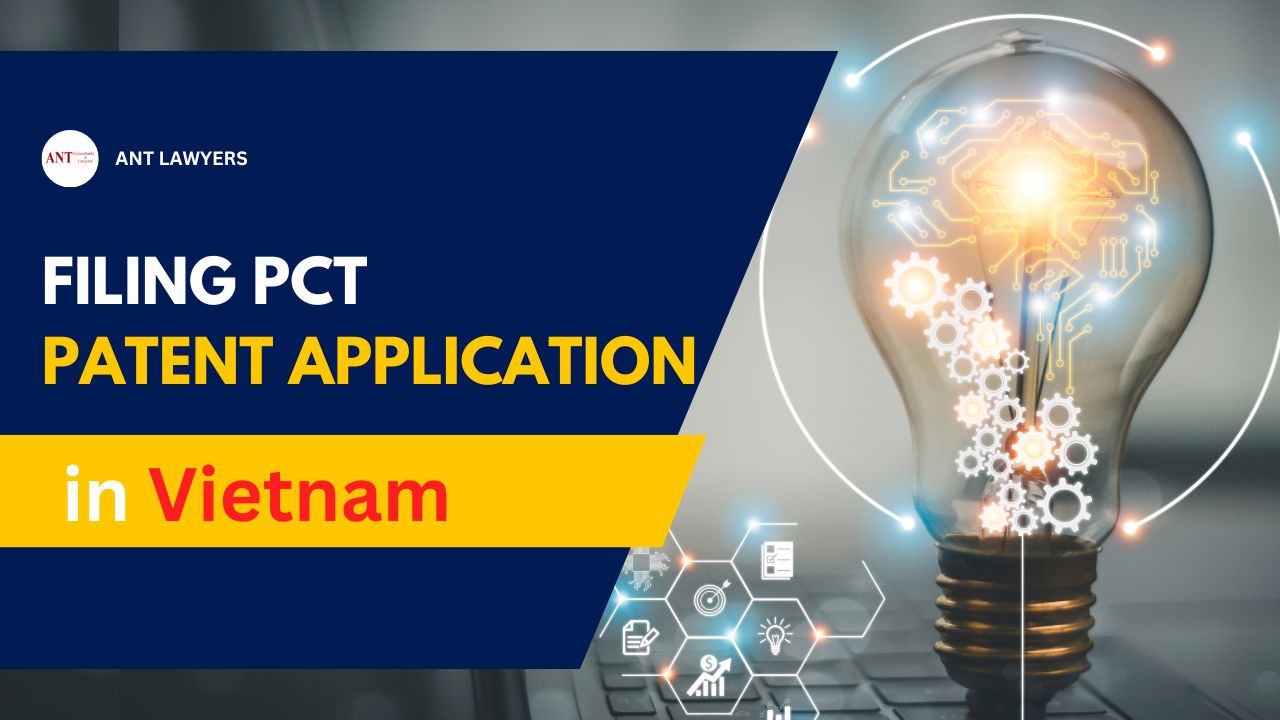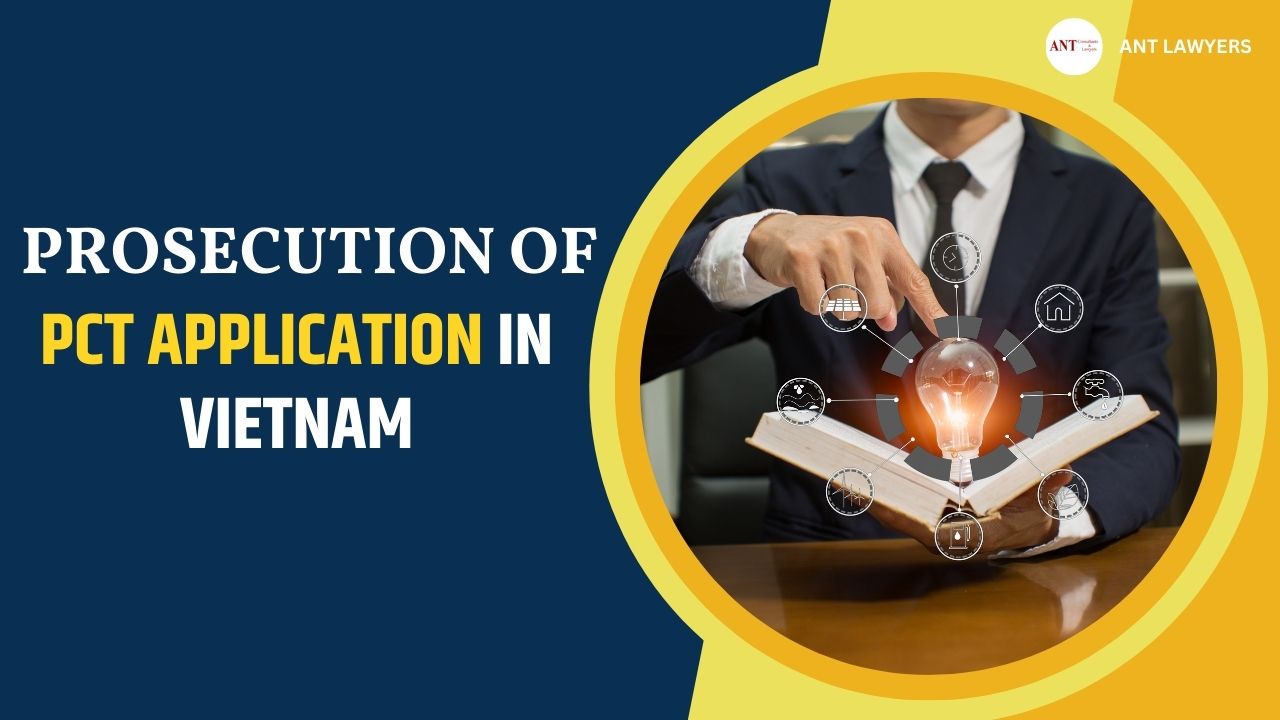2 Crucial Steps for a Smooth PCT National Phase Entry in Vietnam – Why Hiring a Licensed IP Agent Is Essential?


PCT National Phase Entry in Vietnam
Introduction
For innovators and businesses seeking to secure patent protection in Vietnam, understanding the PCT National Phase Entry in Vietnam is critical. As part of the Patent Cooperation Treaty (PCT), Vietnam allows applicants to file a single international application and later enter the national phase to obtain local patent rights. However, one key aspect often overlooked is the importance of working with a registered and licensed IP agent in Vietnam.


In this article, we will explore:
>>The PCT National Phase Entry in Vietnam process,
>>Why engaging a licensed IP agent is mandatory for foreign applicants,
>>Key steps, requirements, and timelines, and
>>Practical tips to ensure a seamless and successful experience.
Let’s dive into the details and highlight why a qualified local agent is indispensable for protecting your intellectual property rights in Vietnam.
Understanding the PCT System and Its Role in Vietnam
The Patent Cooperation Treaty (PCT) simplifies the international patent application process by allowing applicants to file a single application for multiple jurisdictions. For Vietnam, the PCT National Phase Entry in Vietnam is the pathway through which applicants secure local patent rights.
While the PCT streamlines the initial steps, national phase entry in Vietnam involves specific legal and procedural requirements that must be handled by a licensed IP agent. Foreign applicants are not permitted to file directly with the National Office of Intellectual Property of Vietnam (NOIP) and must appoint a qualified local representative.
Why You Need a Registered and Licensed IP Agent
In Vietnam, only licensed and registered IP agents can act on behalf of applicants in patent-related matters, including PCT National Phase Entry in Vietnam. The NOIP mandates this to ensure compliance with local laws and procedures.
- Key Reasons to Hire a Licensed IP Agent:
1. Mandatory Requirement for Foreign Applicants:
Vietnam’s IP laws require foreign entities or individuals to work with a qualified Vietnamese patent agent for all filings, submissions, and communications with the NOIP.
2. Expert Knowledge of Local Procedures:
Licensed IP agents understand the legal nuances of PCT National Phase Entry in Vietnam, ensuring accurate and timely submissions.
3. Handling Vietnamese Translations:
Submitting a high-quality Vietnamese translation of the international application is essential. IP agents can provide or verify accurate translations to avoid delays or objections.
4. Responding to Office Actions:
A registered IP agent can effectively address objections, amend claims, or provide necessary clarifications during examination stages.
5. Minimizing Risk of Errors:
Mistakes or missed deadlines can lead to rejection or abandonment of the application. A qualified agent mitigates these risks.
Steps for PCT National Phase Entry in Vietnam
The PCT National Phase Entry in Vietnam follows a structured process, requiring precision and local expertise. Here are the key steps:
- Step 1: File the International Application
Before entering the Vietnamese national phase, an international application must be filed through:
-WIPO’s International Bureau,
-The receiving office of the applicant’s home country, or
-The Vietnamese National Office of Intellectual Property (NOIP).
- Step 2: Enter the National Phase in Vietnam
To initiate the PCT National Phase Entry in Vietnam, the applicant (through a licensed IP agent) must:
1. Submit the Application: File the application with NOIP within 31 months from the priority date.
2. Provide Vietnamese Translations: If the original application is not in Vietnamese, a translated version of the description, claims, abstract, and drawings must be submitted.
3. Pay National Phase Fees: Ensure timely payment of filing, publication, and examination fees.
4. Appoint a Licensed IP Agent: Foreign applicants must engage a registered Vietnamese IP agent to represent them.
5. Power of Attorney: Submit a notarized Power of Attorney authorizing the licensed agent to act on behalf of the applicant.
Key Deadlines for PCT National Phase Entry in Vietnam
Adhering to critical deadlines is essential to ensure the PCT National Phase Entry in Vietnam progresses without issues.
- Action Deadline
Entering the national phase 31 months from the priority date
Request for substantive examination 42 months from the priority date
Responding to office actions 2-3 months from NOIP notice
Payment of grant fees Upon receiving grant decision
Hiring a licensed IP agent ensures all deadlines are carefully monitored, eliminating the risk of non-compliance.
Stages of Prosecution After PCT National Phase Entry
After successfully entering the national phase, the following stages occur under the supervision of a licensed agent:
1. Formality Examination
The NOIP checks for completeness and accuracy of the application. The IP agent will resolve any formal deficiencies promptly.
2. Publication
The application is published in the Official Gazette within 2 months of national phase entry or 19 months from the priority date.
3. Substantive Examination
A request for substantive examination must be filed within 42 months. The NOIP will evaluate patentability criteria (novelty, inventive step, and industrial applicability).
4. Grant of Patent
Upon meeting all requirements, the NOIP grants the patent. Your licensed IP agent will handle the final payment of fees and ensure proper issuance.
Benefits of Hiring a Licensed IP Agent for PCT National Phase Entry in Vietnam
Engaging a qualified and licensed IP agent brings significant advantages:
-Legal Compliance: Ensures all filings align with Vietnamese IP laws and regulations.
-Accurate Submissions: Minimizes errors in translations, formalities, and responses.
-Efficient Communication: Facilitates seamless interaction with the NOIP.
-Deadline Management: Avoids missed deadlines that can jeopardize the application.
-Expert Representation: Provides professional support during substantive examination and office actions.
For the PCT National Phase Entry in Vietnam, a licensed IP agent is not just a recommendation – it is a legal necessity.
Common Pitfalls to Avoid
To avoid challenges during the PCT National Phase Entry in Vietnam, be aware of these common pitfalls:
1. Missing the 31-Month Deadline: Late submissions will result in the loss of patent rights.
2. Poor Translations: Inaccurate translations can trigger objections and delays.
3. Not Appointing a Licensed Agent: Foreign applicants are required by law to work with a licensed IP agent. Failure to do so will halt the application process.
4. Incomplete Responses: Delays in responding to office actions can lead to rejection.
By engaging a professional and licensed IP agent, you can avoid these pitfalls and navigate the process smoothly.
Conclusion
The PCT National Phase Entry in Vietnam is an essential step for securing patent protection in this growing market. However, the complexities of local IP laws and strict procedural requirements make it imperative to work with a registered and licensed IP agent.
To recap:
-The national phase must be entered within 31 months of the priority date,
-Submissions must include accurate Vietnamese translations,
-Engaging a licensed IP agent is mandatory for foreign applicants, and
-Professional representation ensures compliance and successful prosecution of the application.
By working with a qualified IP agent, applicants can confidently secure their intellectual property rights in Vietnam and avoid costly errors or delays.
About ANT Lawyers, a Law Firm in Vietnam
We help clients overcome cultural barriers and achieve their strategic and financial outcomes, while ensuring the best interest rate protection, risk mitigation and regulatory compliance. ANT lawyers has lawyers in Ho Chi Minh city, Hanoi, and Danang, and will help customers in doing business in Vietnam.


What Points Needing Attention for Filing PCT Patent Application in Vietnam?


Simplifying the Prosecution of PCT Application in Vietnam: 4 Tips
Patent Registration under PCT Procedure in Vietnam
What Are the Procedures to file PCT Patent Application in Vietnam?
What Are Condition, Procedures and Period of Vietnam Patent Registration?
How ANT Lawyers Could Help Your Business?
You could learn more about ANT Lawyers IP Practice or contact our IP attorneys in Vietnam for advice via email ant@antlawyers.vn or call our office at (+84) 24 730 86 529
Recent Posts
5 Powerful Reasons Why Vietnam Digital Asset Sandbox Is a Bold and Hopeful Move for Innovation
Change is fast. Rules are slow. But innovation can’t wait. As digital assets grow, so…
4 Critical Steps to Effectively Terminate The Employment Contracts with Confidence and Compassion
To terminate the employment contracts can be a complex and often sensitive process, especially when…
8 Insights from a Due Diligence Attorneys in Vietnam for Successful M&A Deals
Navigating the complex landscape of mergers and acquisitions (M&A) in Vietnam can be a daunting…
What 7 Crucial Truths About Arbitration in Vietnam Every Foreign Company Must Know Today?
Let's face the fact, as business owners or directors, would you normally look at dispute…
7 Crucial Legal Challenges Fintech Law Firms in Vietnam Can Help You Overcome for Business Success
Vietnam’s fintech sector is experiencing rapid growth, catching up with the trend of digital financial…
7 Reasons to Set Up a Subsidiary in Vietnam Now: A Powerful and Timely Move Amid Global Shifts
Introduction: The World Is Changing Fast, So Should Your Strategy When the world becomes unpredictable,…


